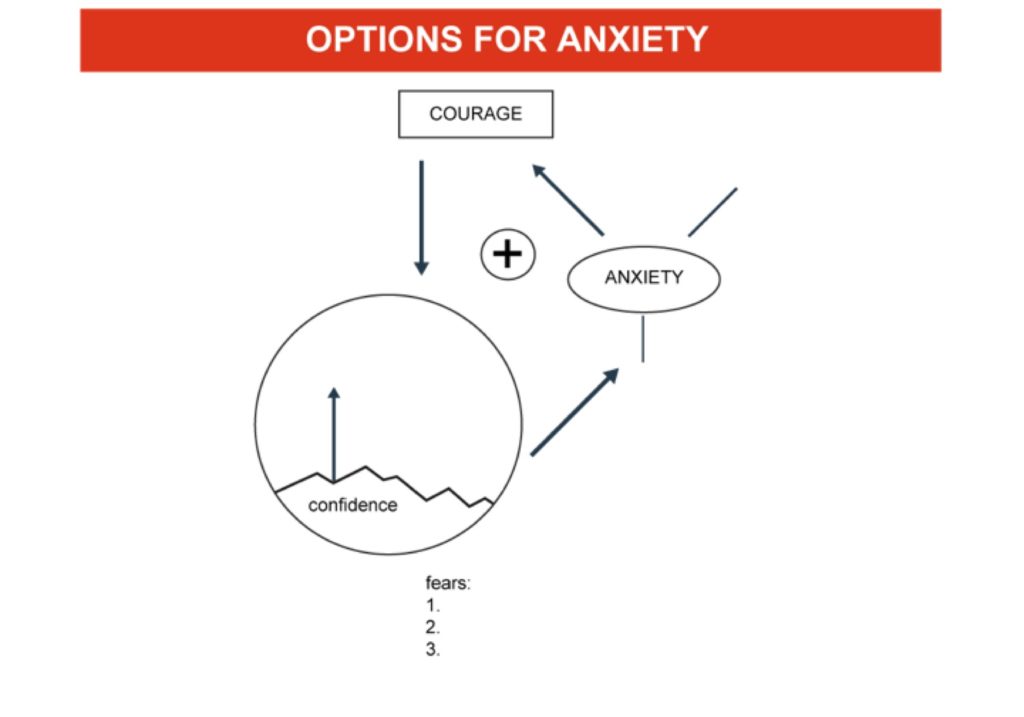When we use courage, we are literally transforming the negative emotional energy of anxiety into positive energy, called, "confidence." This form of self-esteem is defined as a feeling of safety in going about navigating risk, change, grief or loss. It is a feeling of fathering, or being fathered. And so courage is how mature adults, "father themselves."
It is a constructive, "win/win" decision to make with one's anxiety, and takes mature character virtues of patience, anticipation (future planning), and other mature ego defenses such as, perhaps, humor or others, to execute on. One might say that it is the "higher-brained" use of anxiety.
When one does courageous actions, they are benefitting everyone, including themselves and their partner, as well as the environment and community, and the positive feedback they get from the environment teaches them something to bolster their mature decision-making, which is the amplification of the conscience and intuition stores that help us identify when we are doing right by others (ethics, conscience) and when we have chosen a beneficial environment in which to operate (shrewdness, intuition.)
This mode of anxiety expression is then one of the two principles behind the saying, "What doesn't kill us, makes us stronger." The stress, called, "loss" that comes into our lives, which is justifiable and true, and the negative response of others may be "alchemically" transformed into the self-esteem, called, "courage" in this way, making us actually happier and more powerful for the experience, through courage.
Courage should be applied on tasks which are fearsome and cause anxiety. However, for the rare life situations where there is very real danger, courage should not be applied. One out to run away from the threat.
This decision to act maturely then, may also dispel our impulsiveness, avoidance or addiction, defuses our anxiety and that of others, and benefits our romance in the area of love, friendship and emotional attraction.


